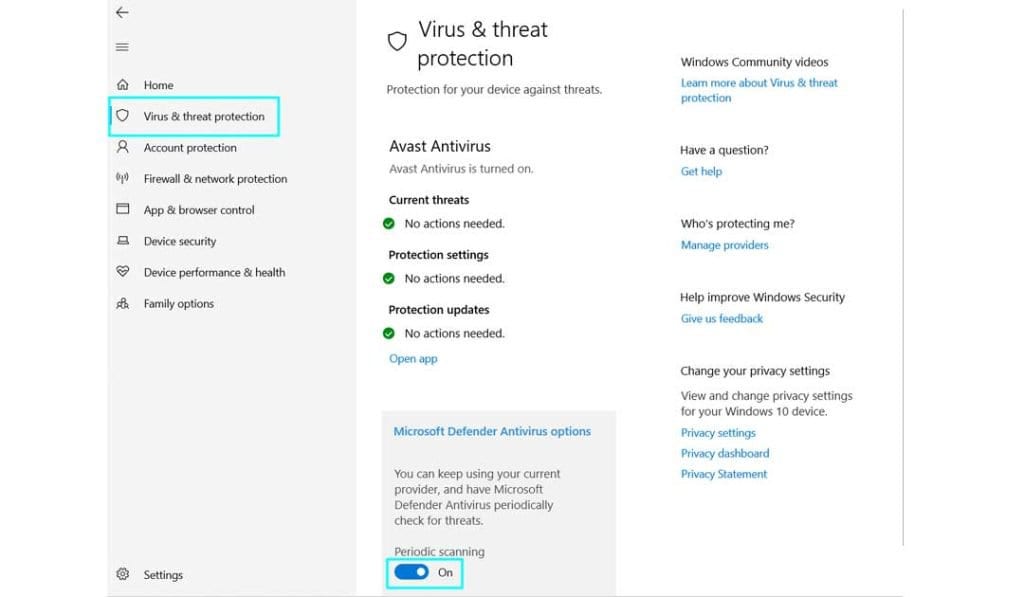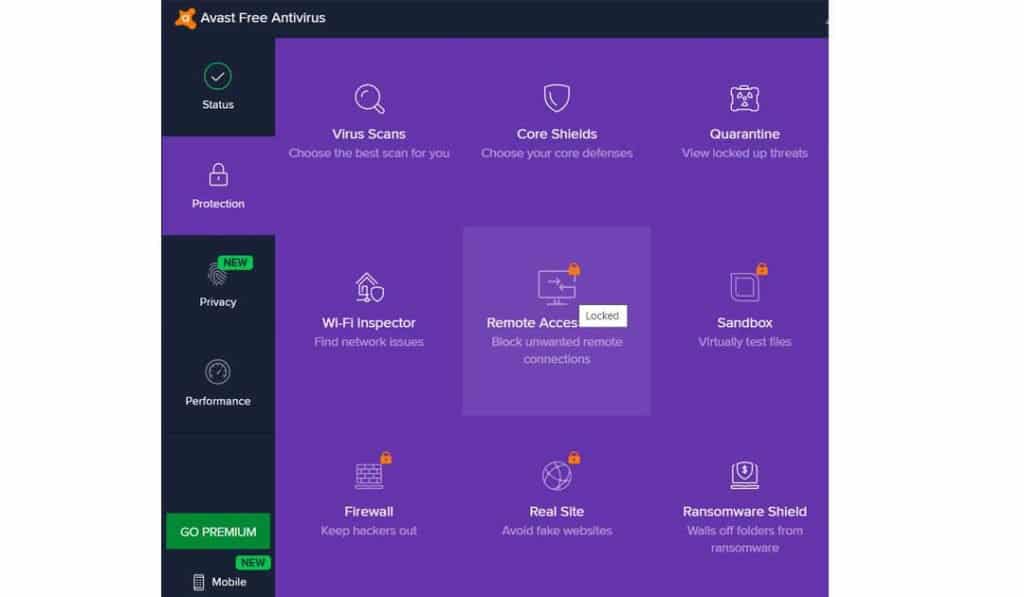You still must ensure that you are running the best antivirus software for your computer especially if you consider the recent increase in global ransomware attacks. As a result, you may be tempted to run multiple antivirus programs on your computer. But can it be done and more importantly, is it a good idea? The short answer to the former is yes and no to the latter. In the following guide, we’ll expand on these questions and give you full details on why you should or should not run multiple antiviruses on your PC.
Can I run Multiple Antiviruses on My PC?
The Windows Defender antivirus (as we know it today) has been around since 2005. Microsoft officially started packaging it with Windows 8.1. Initially, you could run your anti-virus in parallel with Windows Defender or disable it completely. But that soon changed. Now when you install a third-party antivirus, it disables Windows Defender by default. However, you can re-enable it and run both antiviruses in tandem. This is one way of running multiple antiviruses on your PC. However, you can go further and install another third-party antivirus and run all three antiviruses together. Therefore, the answer is an unequivocal yes, you can run multiple antiviruses programs on your computer. But how do you run a third-party antivirus along with Windows Defender? Read on to the next section where we show you how.
How To Run Your Antivirus Along with Windows Defender
For those of you running the latest version of Windows 10, you can re-enable Windows Defender with the following steps:
Open the start menu (Winkey)Type Windows Security into the search field and hit the Enter keyOn the left panel, click on Virus & threat protectionScroll down the main panel and click on Windows Defender Antivirus optionsSet Periodic scanning to On
Once you turn this option on, Windows Defender will only perform periodic scans so it does not interfere with your main antivirus.
Is It Bad to Have Multiple Antivirus Programs and Why?
While it may seem like a good idea to have multiple antivirus programs running on your PC, it’s not. Logically, you would think that it would give you additional security. In most instances, it’s quite the contrary. Your good intentions may have dire results. Here are a few reasons why you should not run multiple antivirus programs on your PC:
A heavy and unnecessary toll on system resources
Running a single heavy-duty anti-virus can be quite taxing on your system. Trying to run multiple antiviruses can slow your system down to a crawl especially if you do not have a high-end system. We would especially advise against running multiple antiviruses on a laptop, especially if you’re powering it using its battery. Anti-viruses can draw a lot of processing power and memory which will, in turn, draw more energy. Even if your computer can handle the system demand, you are still likely to run into freezes and crashes.
Interference
Multiple antiviruses may interfere with each other. Often, antiviruses are as intrusive as the viruses they aim to combat. If you are running multiple antiviruses, the chance of them encountering false positives increases. When your anti-virus detects suspicious programs, it moves them to a quarantine vault, unless you specify otherwise. If both antiviruses run simultaneous scans, they may both detect the same suspicious program or file. This may cause a conflict that causes one of your antiviruses to temporarily stop – or even worse – cause your operating system (especially if it’s Windows) to crash.
Additional Admin
Configuring and running a single anti-virus can take considerable admin. Modern antiviruses come with a host of configurable features. You need to decide which ones your system requires. With the growing complexity of anti-viruses, configuring each takes considerable time and effort. Furthermore, when each antivirus finds a threat, you need to specify how it deals with it. You’ll also need to set scan exceptions (if you have any) for each antivirus.
Why Would You Want To Run Multiple Antiviruses?
We’ve covered why you shouldn’t run multiple antiviruses on your computer. However, there must be some value in it. Here are two reasons why you’d benefit from running multiple antiviruses.
A second opinion
Not all antiviruses are created equal. Companies try to stay ahead of the curve but they can’t all have the most up-to-date definitions and scans. Second-opinions are important in actual healthcare scenarios. It’s the same for your PC’s health and security. Having a second antivirus installed on your PC allows you to obtain a second opinion scan. Professional software security experts will want to install and test multiple anti-viruses to see which ones offer the best protection and work homogeneously with their systems.
Some antiviruses have features that others do not
Some Antiviruses offer nothing more than bare-bones protection. They have a real-time scanner, maybe a firewall, and a quarantine vault. However, their real-time scanner may be excellent with up-to-date definitions. In a case like this, installing a second antivirus with more features is justifiable. Especially if you need something to help you monitor your network traffic and protect you from ransomware. Nevertheless, you’ll need to configure these antiviruses so they can play nice with each other.
Tips on How to Run Multiple Antiviruses Effectively
If you insist on running multiple antiviruses, the best way to reserve your system resources is to streamline how they run or work with each other. You could put one antivirus in-game/silent mode while the other scans. Some antiviruses allow you to configure which components work and how. For instance, despite its shaky privacy record, Avast is a good example of this. It has a set of virus scans, shields, sandboxes, firewalls, etc. You can select which features you would like to enable or disable. If you plan to run multiple anti-viruses, you’ll need to configure each one in such a way that they don’t interfere with each other. Once again, each anti-virus must have the same exceptions and scan rules too.
Alternatives to Running Multiple Antivirus programs
You don’t have to run permanent multiple antiviruses to get a second opinion scan. Companies like ESET have free online scanners on one-time scans that you can download. If your antivirus doesn’t come packaged with a certain feature, you can download or purchase an alternative application. For instance, if you want a more comprehensive firewall feature, why not download TinyWall?
Conclusion
Instead of running multiple anti-viruses, it’s better to have one that is tried, tested, and true. Many anti-viruses offer free or trial versions. The best way to test each one is individually. But of course, you can save time by reading reviews online. Nevertheless, we hope you’ve found this guide to be helpful. If you have any queries, questions, or critiques, please leave a comment down below. As always, thank you for reading.

